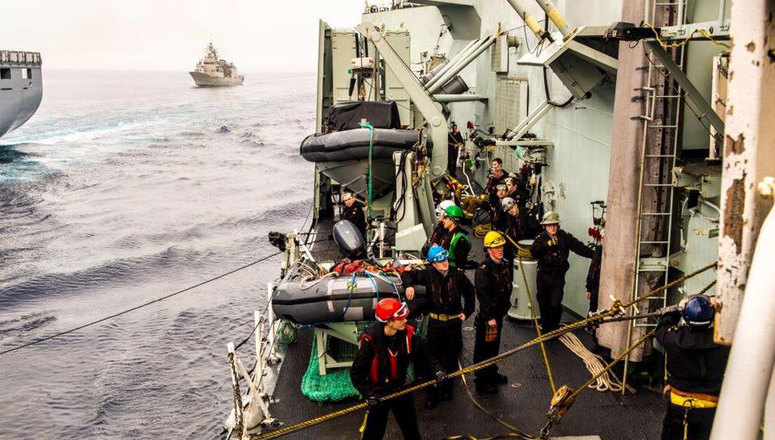Senators accuse State Dept. of defying Congress with $500M UN climate payment
FNC: Two Republican senators are accusing the State Department of misusing taxpayer dollars by green-lighting $500 million for a United Nations climate change program without first obtaining congressional approval.
The senators now are demanding the department justify the “cloak-and-dagger” contribution to the Green Climate Fund (GCF) – even threatening legal action.
“Lawyers cannot replace the constitutional requirement that only Congress can appropriate money,” Sen. Cory Gardner, R-Colo., said, adding that he’s demanding a “full legal analysis.”
Gardner, in a statement to FoxNews.com, alleged the department was trying to “wave a magic wand and write a half-billion dollar check to a Green Climate Fund that they admit was never authorized by Congress.”
He also vowed to “pursue legislative action that prevents cloak-and-dagger re-programming of money outside of congressional approval.”
At the center of the dispute is whether the State Department abused its authority in shifting funds between an existing program and the climate fund.
The Obama administration – despite resistance from congressional Republicans — has committed the U.S. to contributing $3 billion to the fund, a program established by the United Nations to help poor countries adopt clean energy technologies to address climate change. Nearly 200 other nations have agreed to provide $100 billion per year by 2020, from private and public sources.
Along with Gardner, Sen. John Barrasso, R-Wyo., maintains Congress has not allocated any funding for what he calls the “international climate change slush fund” and has in fact “prohibited the transfer of funds to create new programs.”
The State Department acknowledges the funding was never explicitly approved by Congress – but argues the department was within its authority to shift funding to the Green Climate Fund, because Congress did not explicitly prohibit funding the GCF.
Under questioning by Barrasso at a March 8 Senate Foreign Relations Committee hearing, Deputy Secretary of State for Management and Resources Heather Higginbottom told the committee the funds were diverted from the department’s Economic Support Fund — which provides economic funding to foreign countries — to the GCF after a full review by department lawyers.
State Department spokeswoman Katherine Pfaff also confirmed to FoxNews.com the source of the funding was the economic fund, but could not say from which exact program the money came.
And she bluntly addressed the GOP senators’ accusation. “Did Congress authorize the Green Climate Fund? No,” she said, adding that department lawyers “reviewed the authority and the process under which we can do it.”
The administration, meanwhile, has requested another $750 million for the GCF in its fiscal 2017 budget.
Higginbottom also insisted they were not required to notify Congress about the transfer from the Economic Support Fund.
At the hearing, though, Barrasso said the first installment of the $3 billion pledge was “a blatant misuse of taxpayer dollars.”
Barrasso said because the GCF technically is a new program and not authorized by Congress, the department may have violated the Anti-Deficiency Act, a law that prohibits federal agencies from obligating or expending funds in advance or in excess of an appropriation.
According to Politico, Barrasso is prepared to go to court over the issue and to seek prosecution of individuals if they are found to have violated the Anti-Deficiency Act.
The Wyoming senator’s communications director, Bronwyn Lance Chester, confirmed to FoxNews.com that “all options are being considered.”
The department may have been able to effectively use a loophole to contribute the money – namely, because Congress did not include specific language barring spending to the GCF. Analysts say this dispute could have been avoided if Congress had simply included a specific prohibition on spending for the climate fund.
“The problem is that the horse has already left the barn. There was not a specific line item in the budget prohibiting spending on the GCF. I am sure [State Department lawyers] have come up with some creative way to fund it, but it would not be an issue if Congress had explicitly prohibited it,” said H. Sterling Burnett, a senior fellow with the Heartland Institute.
Senate Republicans backed away from including a specific rider in last year’s omnibus bill after President Obama threatened to veto if such a rider were included.
“They were gutless,” said Burnett, who noted the first installment is a “drop in the bucket” when compared with the $3 billion.
Because the omnibus spending bill was silent on the GCF, the White House argued this left the door open for the administration to fund the U.N. program. White House spokesman Josh Earnest said in December “there are no restrictions in our ability to make good on the president’s promise to contribute to the Green Climate Fund.”
Gardner and Barrasso also were signatories to a letter sent last year to Obama asserting the deal reached at a United Nations climate change conference in Paris, including the $100 billion-a-year Green Climate Fund, must be submitted to Congress for approval before any funding could be made.


